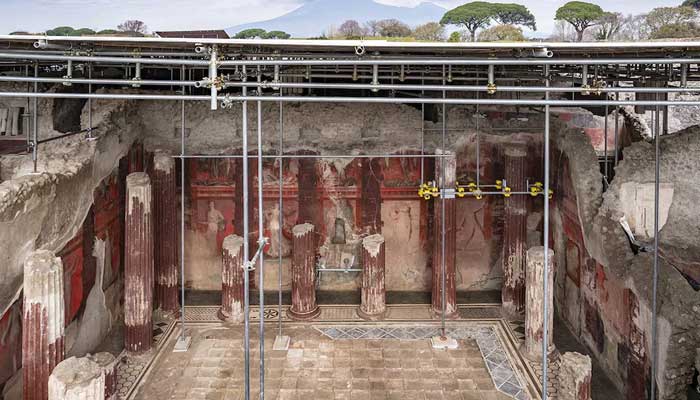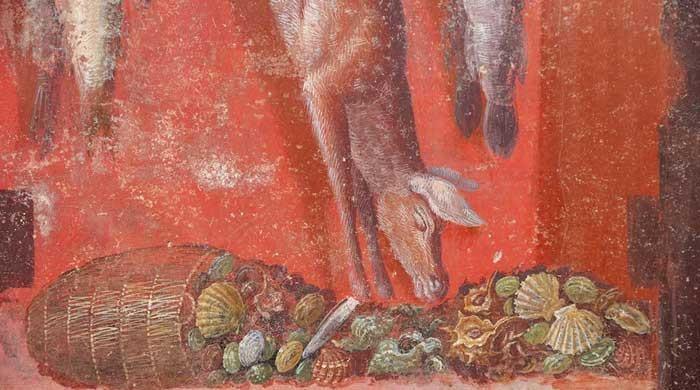The archaeologists of Pompeii discovered rare and almost life -size frescoes which offer new information on religious practices in the ancient city before being destroyed by Vesuvius in 79 years, the site said on Wednesday.
The discovery presents a large -scale frieze which extends over three walls of a banquet room, presenting a vivid imaging of the initiation rites for the followers of Dionysos – the ancient Greek god of wine, fertility, theater and religious ecstasy.
The initiation rituals, known as the Mysteries of Dionysos, were secret religious rites dedicated to the God, promising spiritual illumination and perhaps a life after blessed death.

The fresco, dating from 40-30 BC.
“In 100 years, he will remain in memories today as historical because the discovery we present is historic,” said Italian Minister of Italian Culture Alessandro Giuli, who attended the unveiling of the frescoes.
“In addition to the Villa des Mysteres, this fresco forms an unrivaled testimony to the less known aspects of ancient Mediterranean life.”
The giant frieze illustrates the disciples women of Dionysos as fierce dancers and hunters, carrying a goat slaughtered on their shoulders or holding a sword and the bowels of an animal in their hands.
In the center is the fresco of an elegantly dressed woman who may be waiting to be initiated into the mysteries.
A superior frieze represents living and sacrificed animals, including a fawn, a freshly emptied wild boar, roosters and fish. The researchers said that this juxtaposition underlined the double nature of the Dionysian worship, combining rejoicing with the primary sacrifice.
“The question is, what do you want to be in life, the hunter or the prey?” said the director of Pompeii, Gabriel Zuchtriegel.




